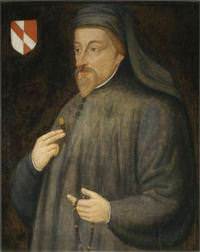An Ecoritical Approach to Chaucer. Representations of the Natural World in the English Literature of the Middle Ages
Alias, Simona
Literary, Linguistics and Philology Studies, University of Trento (2011)
Abstract
Starting from an introduction on ecocriticism the work traces the development of the idea and the representations of nature in the ancient world which so much influenced the Middle Ages; it focuses on the English world by offering an interpretation of the natural world in Beowulf, and draws conclusion on possible eco-oriented ideas of the relationship between humans and the natural world in the ancient Classic and in the Anglo-Saxon worlds. Then the work surveys representations of the natural world in the English Literature of the Middle Ages, considering the fundamental influence of the 12th century philosophical ideas and also offering various examples of different philosophical and cultural approaches to the idea and to the representation of nature and oh humanity’s relation with it. From these premises the work finally proceeds to offer an eco-oriented interpretation of some of Chaucer’s works: Troilus and Criseyde (Classics),Chaucer and the House of Fame, the Parlement of Foules, and a small selection from the Canterbury Tales.
The study of these works shows how Chaucer, albeit not deeply or exclusively involved with the specific matter of an “ecological” idea of the relationship between humanity and nature (also due to the fact that culture in the Middle Ages was seen as a composite but at the same time monolithic system, with little disciplinary specialization), was definitely interested in the subject and in his portrait of human interior and social life both on an individual and on a collective level, he does not miss the chance to exhort his audience to keep an ethical behavior not only toward the other humans, but toward the natural world itself, which is the source for human life and human imagination alike.
An Ecoritical Approach to Chaucer. Representations of the Natural World in the English Literature of the Middle Ages
Middle Ages
Alias, Simona
Literary, Linguistics and Philology Studies, University of Trento (2011)
Abstract
Starting from an introduction on ecocriticism the work traces the development of the idea and the representations of nature in the ancient world which so much influenced the Middle Ages; it focuses on the English world by offering an interpretation of the natural world in Beowulf, and draws conclusion on possible eco-oriented ideas of the relationship between humans and the natural world in the ancient Classic and in the Anglo-Saxon worlds. Then the work surveys representations of the natural world in the English Literature of the Middle Ages, considering the fundamental influence of the 12th century philosophical ideas and also offering various examples of different philosophical and cultural approaches to the idea and to the representation of nature and oh humanity’s relation with it. From these premises the work finally proceeds to offer an eco-oriented interpretation of some of Chaucer’s works: Troilus and Criseyde (Classics) ,Chaucer and the House of Fame
,Chaucer and the House of Fame , the Parlement of Foules
, the Parlement of Foules , and a small selection from the Canterbury Tales.
, and a small selection from the Canterbury Tales.
The study of these works shows how Chaucer, albeit not deeply or exclusively involved with the specific matter of an “ecological” idea of the relationship between humanity and nature (also due to the fact that culture in the Middle Ages was seen as a composite but at the same time monolithic system, with little disciplinary specialization), was definitely interested in the subject and in his portrait of human interior and social life both on an individual and on a collective level, he does not miss the chance to exhort his audience to keep an ethical behavior not only toward the other humans, but toward the natural world itself, which is the source for human life and human imagination alike.
Click here to read this thesis from University of Trento
Subscribe to Medievalverse
Related Posts